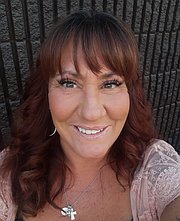Americans turning to the bottle
Unemployment, COVID drive unemployed workers to drink
Across Idaho and throughout the country, people are spiraling into the throes of mental meltdowns and substance abuse.
"Since COVID, I have seen a lot of people with mental health disorders — depression, anxiety, a lot of domestic violence,” Lisa Alberts, director of operations for the nonprofit Kootenai Recovery Community Center, said Thursday.
"There are a lot people in crisis right now," she said. "I’ve seen an increase in the need for recovery services."
A global pandemic coupled with a Great Depression-era unemployment rate is driving people to self-medicate. According to an American Addiction Centers study that surveyed 3,000 workers, one in five recently unemployed Americans are turning to alcohol. One in 10 furloughed or unemployed Idahoans are drinking more than when they were employed.
"It’s not surprising at all to see reports that substance abuse issues are spiking along with unemployment," said Sam Wolkenhauer, labor economist with the Idaho Department of Labor. "The two are intricately related, and substance abuse is certainly something that we worry about when you have a wave of unemployment like this. It is well established that employment outcomes and mental health are inseparable."
He said Princeton University economists Anne Case and Angus Deaton have published research in recent years demonstrating how chronic joblessness is linked to what they call “deaths of despair,” which are causes of death like suicides, drug overdoses and alcoholism, causes of death that are associated with anxiety, depression and a sense of meaninglessness.
"The link is fairly obvious and goes beyond simply worrying about personal finances," Wolkenhauer said. "Stable employment is a key aspect of meeting what we might call the 'dignity needs' of our people — a critical purpose and sense of structure.
"When you take that away and add on anxiety over paying bills, it’s not surprising that substance abuse follows, perhaps especially in a time like the COVID epidemic when our social connections and routines are tested and cut by social distancing," he added.
While Idaho's alcohol use among its unemployed hovers at 10%, the states with the highest usage are Delaware at 40%, Utah and New York at 42% and Arkansas at 50%.
The "Unemployed Drinkers" study found that 14% of Americans would turn to alcohol to help cope with stress if they lost their jobs. Nearly half of those surveyed have noticed signs of poor mental health among colleagues since the advent of the pandemic.
More than two-thirds of workers think companies should have systems in place to manage employees' mental health during the pandemic and 67% said they'd help a former colleague financially if they lost their job, but only 36% of workers said they would alert their bosses if they noticed a colleague drinking during work hours.
American Addiction Centers defines substance abuse as the excessive use of either drugs or alcohol, which results in functional and clinical impairments. Some of the signs of substance abuse can also be signs of anxiety, depression or physical illness.
Symptoms commonly associated with substance abuse include tremors, being late to work, and forgetfulness.
"Anxiety, depression and other mental health struggles have been exacerbated by the coronavirus outbreak, and the stress that comes from precarious employment situations that many are enduring can be a lot to handle,” Dr. Lawrence Weinstein, chief medical officer of American Addiction Centers, stated in a press release. "Many people are turning to alcohol to cope with their newfound hardships and, in turn, are compounding their difficulties. Excess consumption of alcohol can be a slippery slope that can lead to dependence and alcohol use disorder. If you feel that your excess alcohol intake, or that of a co-worker or loved one, is becoming problematic, reach out for help."
Alberts said she and her team at KRCC are ready to help whoever walks in their door.
“They have to first realize they might have a problem, and a lot of people have trouble admitting they do have a problem because of the stigma in the community," she said. “Nothing anybody can tell me will surprise me."
KRCC offers free resources including access to Alcoholics Anonymous, Narcotics Anonymous, Al Anon and Celebrate Recovery, to name a few.
"We have resources to get you into treatment, to get you anything you basically need," Alberts said. "We also have programs to help people right out of jail."
KRCC, at 1621 N. Third St. in Coeur d'Alene, is open 1 to 5 p.m. weekdays. Appointments are preferred, but Alberts said, "If someone’s in crisis they can come right in."
"There's a stigma with substance abuse and there's a stigma with mental health," she said. "We want to break that stigma."
Info: lisa@kootenairecovery.org or www.kootenairecovery.org





